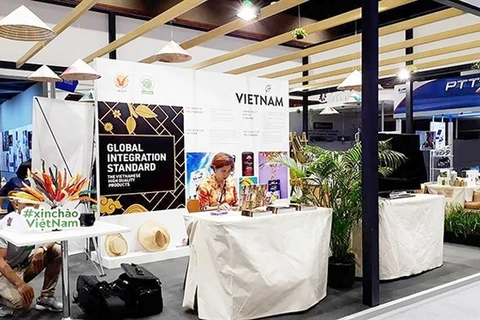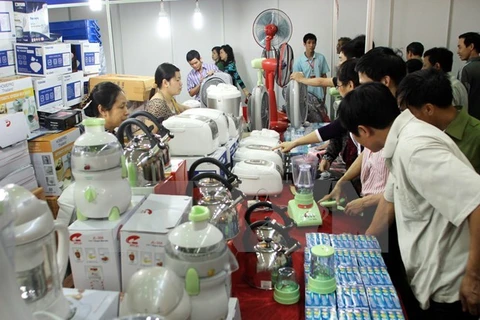Hanoi (VNA) – Vietnam-Thailand trade is likely to hit 20 billion USD in 2020, but the target to keep the trade value in balance may not be met with Vietnam currently running huge trade deficit with the neighbouring country.
Thailand has become the largest trade partner of Vietnam in the Association of Southeast Asian Nations (ASEAN). Trade in goods between the two countries increased 14.7 percent to 8 billion USD in the first half of 2018.
After the ASEAN Economic Community was formed, Vietnamese exports to Thailand have been on the increase, but they are still modest compared to the growing pace in imports. Therefore, trade deficit with Thailand during January-June of 2015, 2016, 2017 and 2018 amounted to 5.09 billion USD, 5.15 billion USD, 5.65 billion USD and 2.61 billion USD, respectively. The figures were equivalent to, and even higher than, Vietnam’s export earnings from Thailand.
Among markets with which Vietnam runs a trade deficit, Thailand is at the first place among ASEAN markets and the third place overall, following the Republic of Korea and China.
More than half of Vietnam’s imports from Thailand are machines, equipment, sparing parts and essential materials, which means domestic production and exports will be impacted if Vietnam stops or reduces the import of those products from Thailand.
Reduction in import taxes as part of the ASEAN Trade in Goods Agreement (ATIGA) has been attributed to the trade deficit with Thailand. Vietnam has already removed import tax for 90 percent of all tariff lines, and the figure is set to increase to 98 percent in 2018. And Thai exporters know how to take the advantage. From the outset of this year, 80 percent of CBU passenger car imports were from Thailand.
Meanwhile, Thailand has erected barriers for Vietnamese goods.
In addition, although Thailand only landed an investment of more than 8 billion USD in Vietnam, which is inconsiderable compared to investments from the Republic of Korea, Japan, Hong Kong and Malaysia, they are among the few rare investors having come early and establishing permanent foothold in the Vietnamese market.
The Thai-invested CP Breeding Joint Stock Company is owning 7 percent of pork market share, 16 percent of industrial egg market share, 22 percent of chicken market share, and 18 percent of animal feed.
Furthermore, popular retail brands in Vietnam such as Big C, Metro, and electronic appliance retailer chain Nguyen Kim have fallen into the hands of Thai investors. Also, they had ownership in Vinamilk, Prime, Binh Minh Plastics, and Sai Gon Beer, Alcohol and Beverage Corporation (Sabeco).
Thanks to those investments, Thai companies gradually dominate distributing systems and bring made-in-Thailand products to replace those produced in Vietnam.
Last year, Vietnam shipped 36 million USD worth of vegetables and fruits to Thailand, decreasing 10 percent year on year, but Thailand’ export of those products to Vietnam rose 21.5 percent to 857 million USD.
Thai investors have been successful in Vietnamese market thanks to their effective strategies.
Therefore, the goal of working towards bilateral trade balance set by the two countries at the third meeting of the Vietnam-Thailand trade joint committee is still a long way to go.-VNA
VNA

























